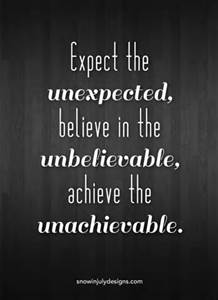 All of our lives are a series of changes. Nothing we know stays the same, despite all our efforts to try and keep it steady , the same and under our control. Sometimes, change seems to just happens to us. – Perhaps we have gotten ill, been betrayed, lost a loved one or lost a job. Anxiety is always about what the future will hold. We have evolved as a species needing to anticipate the future. As a result, our brains are always prepared for what may happen in the next moment. Traumatic unexpected events create strong feelings remembered for many years. These are called “flashbulb” memories. All of us can “see” in our mind’s eye or “feel” in our guts when we were dealt any difficult event or powerful change.
All of our lives are a series of changes. Nothing we know stays the same, despite all our efforts to try and keep it steady , the same and under our control. Sometimes, change seems to just happens to us. – Perhaps we have gotten ill, been betrayed, lost a loved one or lost a job. Anxiety is always about what the future will hold. We have evolved as a species needing to anticipate the future. As a result, our brains are always prepared for what may happen in the next moment. Traumatic unexpected events create strong feelings remembered for many years. These are called “flashbulb” memories. All of us can “see” in our mind’s eye or “feel” in our guts when we were dealt any difficult event or powerful change.
When an event happens that we don’t understand, we try to make some sense of it. When we can’t understand what has occurred, we feel fear or anxiety. However, there are unexpected experiences that can be very rewarding and important. Unexpected praise from someone is often more powerful that when it is anticipated. Being surprised can be exciting. The brain secretes dopamine in response to an unexpected event which can create a pleasant feeling. We all differ in our production of this neurotransmitter, but as we age we produce less of it. Our expectations and thoughts of what “should” occur also impact our responses.
It’s been said that we spend our days” moving between the boredom of near perfect predictability and the fear of total unpredictability”.
When you try to expose yourself to a novel event and expect it to be good, you create the chemicals that produce well-being and relaxation. When you try to do anything that you believe is healthy or healing, you not only change the way you feel emotionally, but also change your brain chemistry. Call it whatever you want- the placebo effect, but when we feel hopeful for improvement with any type of therapy, the power of that treatment is increased.
A central aspect of this is if you are ready to change. Now this does not mean that we can alter anything we want, but being ready to explore what you can change is central to moving beyond feeling a victim to circumstance. When an unexpected event happens to you, you have some choices in how you understand what has happened. You can ignore the event, acknowledge it and not try to understand it, or you can acknowledge it and work to change your understanding of what has occurred.
We all do better emotionally when we move from the unpleasant state of “not knowing”. Although there are times when the answers are not simple or easy, we can all work to find the level of understanding and hopefully acceptance. Remember the “self talk” going on inside your head is what is ALWAYS under your control despite the need to expect the unexpected.


I’m always thankful our paths have crossed, that I receive these nurturing thoughts via e mail and that I have the sense to make time to read them.
Thanks.